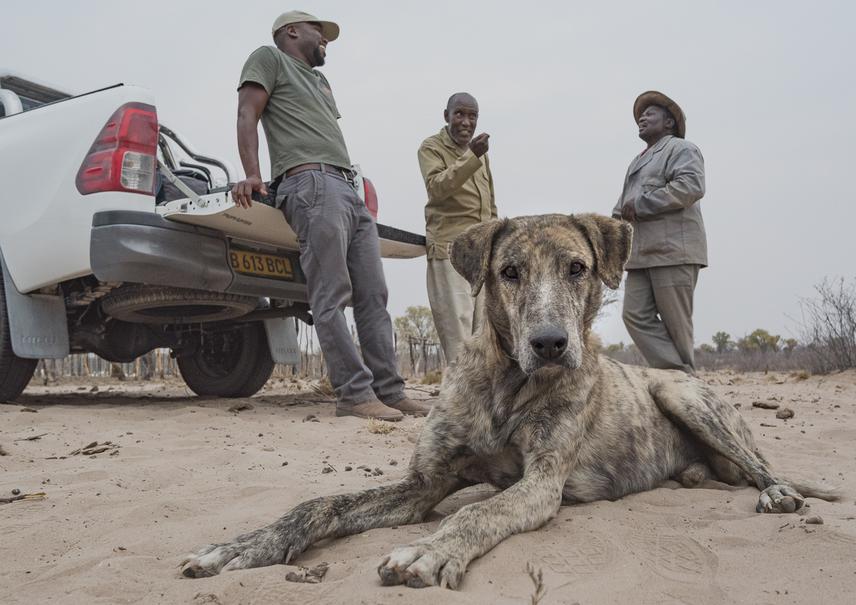Rebecca Klein
Other projects
This project will provide farmers experiencing high levels of carnivore conflict with livestock guarding dogs and provide ongoing training and support in livestock and conflict management.

Phale Seele, monitoring livestock guarding dogs
Over the past century, the world’s cheetah population has declined by 90% due to habitat loss, declining prey populations, poaching, and increasing human wildlife conflict. The global population is tentatively estimated at around 7,100 adult and adolescent cheetah distributed across 33 populations. Human encroachment has contributed to the loss of 75% of the area where they used to roam.
Botswana is one of the last strongholds of cheetahs left in the world, containing approximately 30% of the estimated 7100 wild cheetahs remaining on earth. In addition, its central position on the continent makes it an important strategic region, providing connectivity between remaining cheetah populations. Despite the nation’s strong conservation credentials, Botswana’s cheetahs are under threat. Protected areas cannot be relied upon to conserve adequate populations, as cheetahs are often out-competed by high populations of stronger carnivores. As a medium size carnivore, cheetahs have evolved to avoid stronger competitors through their wide ranging habits and low densities. Although Parks and Game Reserves provide a haven for many carnivores, cheetahs require space that extends beyond most existing protected areas. It is estimated that 90% of Southern Africa’s cheetahs live outside protected areas. Here they come into conflict with livestock farming communities. The majority of Botswana’s rural communities depend on livestock farming as their primary source of income generation. Tolerance towards cheetahs and other carnivores is generally low and retaliatory killings of cheetahs and other threatened carnivores, such as wild dogs, jeopardise already vulnerable populations.
Long term survival is dependent on conservation management of these agricultural zones. Although the proximity to farming operations does produce conflicts, it has been demonstrated that with the adoption of simple and appropriate livestock husbandry techniques, this conflict can be minimized and tolerance improved.
Cheetah Conservation Botswana promotes the use of effective livestock management and non-lethal methods of carnivore control. This project focuses on promoting the use of livestock guarding dogs. Dogs have been used throughout the world for thousands of years as an effective tool in preventing the loss of livestock to carnivores. These dogs can be highly effective at deterring cheetahs. By promoting this and other effective methods of livestock management, the project aims to prevent retaliatory killings, reduce livestock losses, and improve community livelihoods.